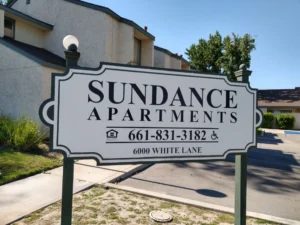Rent it Right Tip for Landlords
 to the dismay of many tenants.
to the dismay of many tenants. A: Your sister’s landlord is imaginative, I’ll give him that. But he’s also avoiding his contractual obligations, and even setting himself up for a nightmarish legal mess. Let’s get to the simpler issue first.When your sister’s landlord advertised and showed the property to prospective tenants, you can be sure he touted the pool as a valuable feature of the property.
For tenants with month-to-month rental agreements, he can amend the agreements — to specify that the rental comes without use of a pool — with proper notice (30 days in most states). Of course, those month-to-month tenants would expect the rent to be decreased to reflect the lowered value of a pool-less complex.
Now let’s consider his loopy suggestion that the tenants buy the pool and pay for its upkeep. First, the tenants cannot become legal owners unless the landlord subdivides his property and sells them a separate parcel consisting of the land that contains the pool, which is right in the middle of the complex. This is ridiculous.
What he’s really hoping for is that everyone will wink at this obvious fiction and simply take over paying the pool service for regular maintenance. But this is the same as raising the rent — which he cannot do if tenants have leases, and must do properly (with legal notice) if tenants have month-to-month agreements.
Your sister and other tenants have a very powerful option: threaten to go to small claims court if they don’t get their pool back. In court, each tenant would ask the judge to order the landlord to pay them the difference between the rent they’ve been paying while the pool has been closed and the value of their apartments without a pool.
They’d ask the court to consolidate their claims, which courts will do for efficiency’s sake. (Imagine 200 households making identical claims!) This lawsuit will quickly get the landlord’s attention, because although it’s in “small” claims court, the sum of the tenants’ claims will be thousands of dollars. Believe me, this approach often works, and the theory behind it (that the tenants aren’t getting what they’re paying for) is garden-variety contract law.
Janet Portman is an attorney and managing editor at Nolo. She specializes in landlord/tenant law and is co-author of “Every Landlord’s Legal Guide” and “Every Tenant’s Legal Guide.” She can be reached at [email protected].













 Accessibility
Accessibility